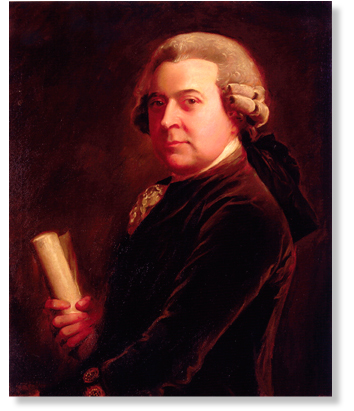John Adams

It is hard to imagine the United States getting where it is today without remembering John Adams. He was there in Boston in the 1760s, when that city became a hotbed of rebellious ideas. Yet, Adams kept a level head. When mob rule threatened the city after the Boston Massacre, Adams agreed to defend the British soldiers in court. To Adams, it was simple: The law guaranteed the soldiers a fair trial, and he was prepared to obey the law. It kind of sums up Adams’s whole life: He had strong opinions, but he was prepared to do what was right.
Adams was convinced that taxation without representation and being treated like second-class citizens were definitely not right, so he took a stand. At the Continental Congresses in the 1770s, Adams’s voice was the loudest when it came to discussing independence. Forceful and determined, Adams convinced his fellow delegates to vote for a break from England.
That decision meant great sacrifices for Adams personally. He was appointed ambassador to several nations in Europe in behalf of his young country, which meant years of separation from his family. But while in The Netherlands, Adams secured much-needed loans to help finance the Revolutionary cause. And he was one of three Americans who crafted the Treaty of Paris ending the war.
Adams had done so much to make the Colonies an independent nation, but the new country needed strong leaders to guide it. Adams answered that call to service, too, as the nation’s first vice president and its second president.
Although his years in the executive branch were difficult, Adams made a critical decision as president. He refused to go to war with France when that nation began attacking American ships in 1797. He knew the United States was not prepared to engage in another war, so he used diplomatic channels to resolve the conflict. It was not the popular thing to do, but it was good for the country. And that was how John Adams rolled.
